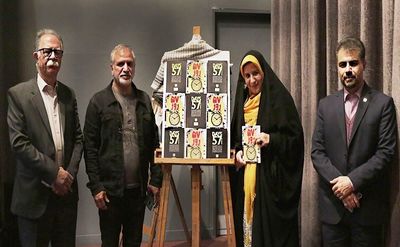The book entitled “57 Days” has been published by the National Museum of the Islamic Revolution and Sacred Defense.
It was unveiled in a special ceremony at the museum on Monday.
“Men’s role in the [1980-1988 Iran-Iraq] war has been regarded more than women, while about 7000 women were killed in the war,” Gholampur said at the ceremony.
“As a woman, I felt a responsibility to write about the key role women played in the hard days of the war,” she added.
The events in this story revolve around a woman from Mashhad who moves to Susangerd due to her husband’s mission as an officer. Following their arrival, the war breaks out and the town was captured by the Iraqi forces after a number of Arab people of the town turn into traitors against the country.
Speaking at the ceremony, war literature expert Mohammad Hanif said, “By this book, Ms. Gholampur joined the community of novelists, which expect a lot from her.”
“This book enjoys a rich factual background, because the writer visited the town for field research to write her book. The story helps readers purify their spirits; it features a simple and compelling narrative as the dialogues enjoy personality,” he added.
“It is necessary to write about war to keep the peace; writing about war shows what would happen if a war is imposed on a people and they would not manage to defend their country,” he noted.
Located in Khuzestan Province, Susangerd had a population of 15,000 in 1980 when it was captured by Iraqi invaders on September 28, just one week after the war erupted.
Volunteers from Tabriz joined a resistance front that formed in Susangerd and they cleared the town of the Iraqi invaders on November 17.
A park in the town has been named after Tabriz in memory of the Tabrizi volunteers fought against the Iraqis.
Source:Tehran Times

